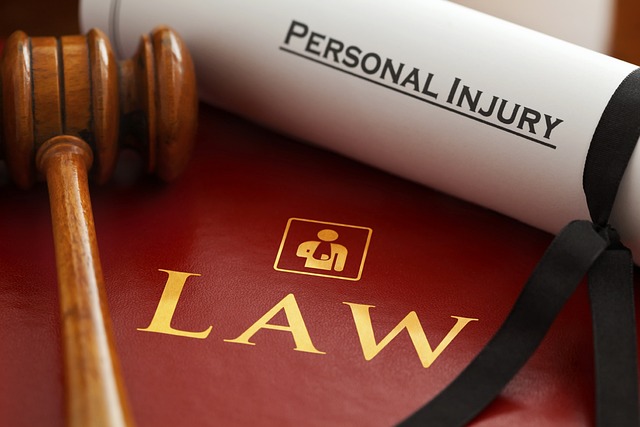2023 saw significant changes in personal injury law, with new legislation and judicial rulings affecting how claims are filed and processed. These changes aim to reduce fraudulent claims while protecting genuine victims, introducing stricter evidence standards, clearer statutes of limitations, and new criteria for expert testimony and causation. Personal injury cases require careful handling by legal professionals, especially given the complexities of assessing negligence, the severity of injuries, and the long-term impact on a person's life. The process involves collecting comprehensive medical evidence, evaluating fault, and understanding jurisdictional laws to ensure fair compensation for medical costs, lost wages, and non-economic damages. Success in personal injury litigation hinges on legal expertise, the strength of witness statements, credible representation, and an awareness of local precedents. Understanding these nuances is critical for anyone involved in a personal injury claim, as it navigates the delicate balance between victim compensation and maintaining the integrity of the legal process.
navigating personal injury law can be a complex journey for those seeking justice and compensation. This article delves into the nuanced realm of personal injury law, providing clarity and guidance for aspiring claimants. We’ll explore recent developments in legislation and case law that shape this legal field, ensuring you’re informed on current trends. Additionally, we outline a clear, step-by-step guide through the claims process, demystifying the complexities involved. Furthermore, understanding key factors influencing settlements and verdicts is crucial for claimants to set realistic expectations. Whether you’re new to personal injury law or seeking deeper insight, this comprehensive resource will equip you with essential knowledge.
- Understanding Personal Injury Law: An Overview for Aspiring Claimants
- The Latest Developments in Personal Injury Legislation and Case Law
- Navigating the Complexities of Personal Injury Claims: A Step-by-Step Guide
- Key Factors in Personal Injury Settlements and Verdicts: What to Expect
Understanding Personal Injury Law: An Overview for Aspiring Claimants

Understanding personal injury law is crucial for individuals considering a claim after sustaining an injury due to another party’s negligence or wrongdoing. Personal injury law is designed to provide legal recourse and financial compensation to those harmed in incidents like car accidents, workplace injuries, medical malpractice, or slip and fall incidents. When assessing a potential case under personal injury law, it’s important to establish that the defendant owed a duty of care to the plaintiff, breached this duty, and as a result, caused the injury in question.
The process of making a personal injury claim typically involves gathering evidence, such as medical records, witness statements, and documentation of any financial losses incurred due to the injury. It’s also essential to prove that the injury has led to actual damages or harm. Aspiring claimants should be aware that statutes of limitations apply, meaning there is a time limit within which a claim must be filed. Personal injury law can be complex, with various factors influencing the outcome of a case, including the severity of the injury, the state’s laws, and the legal strategy employed by the claimant’s representative. Understanding these nuances is key for anyone looking to navigate the personal injury legal system effectively.
The Latest Developments in Personal Injury Legislation and Case Law

2023 has seen a significant evolution in personal injury law, with numerous legislative changes and landmark case decisions shaping the landscape. Legislation enacted this year has tightened the requirements for filing personal injury claims, necessitating more stringent evidence to substantiate allegations of negligence or harm. This shift aims to reduce fraudulent claims while ensuring that legitimate cases receive the attention and compensation they deserve. Concurrently, case law developments have set new precedents, particularly in the realm of medical malpractice and product liability. The courts have increasingly emphasized clearer guidelines on statutes of limitations, the admissibility of expert testimony, and the criteria for proving causation. These changes reflect a judicial effort to balance fair compensation for victims with the need to maintain the integrity of the legal process, thereby upholding the principles of personal injury law in the face of ongoing challenges and new circumstances. Legal professionals and those affected by personal injury are advised to stay informed about these developments as they continue to influence the rights and remedies available under this complex area of law.
Navigating the Complexities of Personal Injury Claims: A Step-by-Step Guide

Navigating the complexities of personal injury claims can be a daunting task for individuals who have suffered an injury due to someone else’s negligence or wrongdoing. Personal injury law is designed to protect those harmed and provide a mechanism for seeking compensation, but the process involves numerous steps that require careful attention to detail and legal expertise. The initial step in this journey is evaluating the merits of your case. Determine if the incident was caused by another party’s negligence or misconduct, and assess the extent of your injuries and the resulting impact on your life. This will involve gathering evidence such as medical records, police reports, and witness statements. Consulting with a qualified personal injury attorney is crucial at this stage, as they can offer guidance on the strength of your claim and the likelihood of a favorable outcome.
Once you have retained legal counsel, your attorney will guide you through the subsequent steps of the process. They will handle all communications with insurance companies, which often seek to minimize payouts or deny claims outright. Your lawyer will also manage the preparation and filing of necessary legal documents, including the complaint that initiates a lawsuit and any motions that may arise during the case. Throughout the litigation process, your attorney will represent your interests vigorously, whether through settlement negotiations or at trial. They will leverage their expertise in personal injury law to advocate for fair compensation for your injuries, losses, and future needs. This includes calculating current and future medical expenses, lost wages, and pain and suffering, among other damages. Navigating the complexities of personal injury claims is a journey that requires not only legal acumen but also empathy and support as you recover from your injuries. With an experienced attorney by your side, you can focus on your recovery while they handle the intricacies of the law to seek justice and fair compensation for your personal injury claim.
Key Factors in Personal Injury Settlements and Verdicts: What to Expect

navigating the complexities of personal injury law, understanding the key factors that influence settlements and verdicts is crucial for anyone involved in such cases. Several elements play a pivotal role in determining the outcome of a personal injury claim. Firstly, the extent of the injuries sustained and the associated medical evidence are paramount. This includes both current medical reports and anticipated future treatment needs. The severity and long-term impact of the injury will significantly affect the potential settlement value or jury’s decision.
Additionally, liability is a critical factor. Establishing who is at fault for the incident is essential, as it can dictate the direction of negotiations and the willingness of insurance companies to settle. Other considerations include the comparative negligence laws applicable in the jurisdiction where the injury occurred, which can affect compensation amounts if the plaintiff is found to share some responsibility for the incident. Furthermore, the availability and credibility of witnesses, the strength of the argument presented by legal counsel, and the history of similar cases in the same court or jurisdiction all contribute to what one might expect from a personal injury settlement or verdict. Understanding these factors within the context of personal injury law is key to navigating the legal landscape following an injury.
navigating personal injury law can be a complex journey for those unfamiliar with its intricacies. This article has demystified key aspects of personal injury law, from understanding its foundational principles to exploring the latest developments in legislation and case law. Aspiring claimants will find valuable guidance in navigating the claims process, and insights into factors that influence settlements and verdicts are provided to set realistic expectations. It’s advisable for individuals involved in personal injury cases to seek informed legal counsel to best assert their rights and pursue fair compensation. With this knowledge at hand, claimants can approach their situations with greater confidence and understanding of personal injury law’s nuances.
